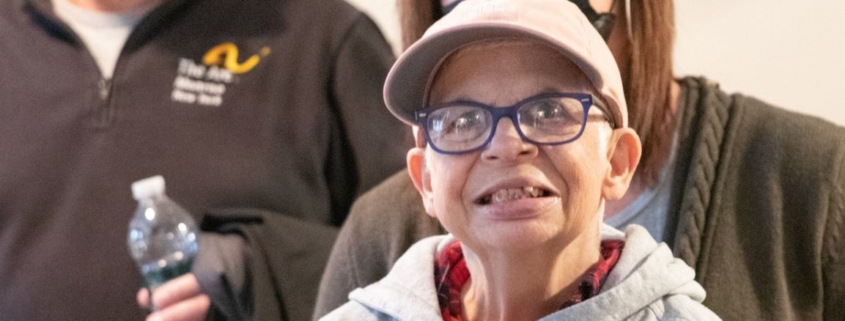For the first time in history, Americans living in the 21st century will experience millions of people with intellectual and developmental disabilities living into their senior years. These Americans want to enjoy their older years in the same manner as others their age and have a right to the same opportunities, including full access to community supports from those agencies that serve all older people. However, many
community-based services for senior citizens are not prepared to meet the special needs of older adults with IDD. Likewise, many disability-focused organizations have not planned for the challenges faced by these individuals. The discrimination that older people often experience in accessing community activities, housing, services and supports is experienced to a much greater extent by people with IDD as they age.
Advocacy for and on behalf of people with intellectual and other developmental disabilities spans a lifetime. It is critical that advocates ensure that resources are dedicated to providing older adults with IDD the means to remain and thrive with dignity and respect as a vital part of their community.
It is The Arc New York’s position that:
As they age, people with IDD must have every opportunity to be recognized as respected members of the community. Community services and supports that are geared to older community members must accommodate the supports needed by those who have also experienced lifelong disabilities.
People with IDD who are aging should:
- Be afforded the same rights, dignity, respect and opportunities as other older people in their communities;
- Be empowered, together with their families if asked, to advocate for themselves and be free from discrimination on the basis of disability and/or aging;
- Have access to appropriate community-based social services, transportation, legal services, the full array of affordable housing services appropriate to their age and physical and mental condition, and the full array of health care services appropriate to their age and physical and mental condition, including
preventive health care, ongoing habilitation and rehabilitation services for as long as they are needed, including appropriate end-of-life care; - Receive the supports they need to live, work, play, and retire when, where, and how they prefer, including supports for family members who can assist them in the pursuit of a quality and self-determined aging experience;
- Be free from the fear of inappropriate institutionalization, elder abuse and neglect by family members, providers or community members;
- Have access to financial supports that will provide them with retirement opportunities like those that are available to other older persons
- Have the right to be supported by staff with appropriate training, skills and competencies necessary to support them through their lifespan
- Have the right to be supported by service providers who exercise moral and ethical responsibility as they advocate for appropriate, competent and caring services in the community throughout the individual’s lifespan
- Have the respect of their supporting provider organization through clear policies, services and supports, physical space and resources to help prevent falls, functional decline and to improve their quality of life throughout their life span
- Have the right to be active participants in developing an individualized personal plan that guides the service provider, staff, family and advocates that reflects their personal life choices, including health, wellness, recreation, and end-of-life decision





